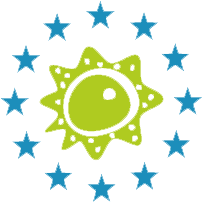Plenaries at ESCAIDE 2022
Plenaries provide an opportunity to discuss public health challenges and scientific advances, bring together experts in cross-cutting fields to enable evidence from infectious disease research and epidemiology to be translated into improvements in public health.
The content of plenaries is developed by the ESCAIDE Scientific Committee (10 cross-field members), who invite high-level speakers to deliver inspiring presentations and address questions from the audience. There are five plenary sessions at ESCAIDE 2022, chaired by the ESCAIDE Scientific Committee. The format of each varies from panel discussions, interviews and debates.
Plenaries in hybrid: All plenary sessions will be live-streamed to the conference platform, with speakers and audience in the venue and online. Recordings of the sessions will be available on YouTube after the conference.
Speakers at ESCAIDE 2022
Learn more about the plenary speakers at this year's conference
Plenary A: Controlling a pandemic – what are the ethical boundaries?
Day 1 - Wednesday 23 November, 8:50-10:00
Keynote session
From an ethicist’s perspective, how can the public health objective of bringing a pandemic under control be reconciled with the societal needs for freedom of choice and a functioning economy? Experience from the last two years with lockdowns and vaccination and face mask mandates has raised questions about how to balance the need to protect lives with the need to protect livelihoods. The session will include reflections on how ethical aspects should be taken into account when preparing for a public health crisis, and how ethicists and public health experts/policymakers can work together better to integrate ethics into decision making regarding public health measures.
Chairs: Andrea Ammon (ECDC) and Mike Catchpole (ECDC)
Keynote speaker: Alena Buyx (Technical University of Munich, Germany)
Plenary B: Refugees and refuge: how to promote and protect the health of displaced people
Day 1 - Wednesday 23 November, 16:30-18:00
The challenges of protecting and promoting the health of people displaced by war or other events are manifold. Those responsible for providing support need to take into account the conditions that displaced people experienced prior to their flight, the conditions encountered during flight, and the conditions under which they will be accommodated in the receiving country. The assessment of needs and provision of support need to be culturally sensitive, avoid unwarranted stigmatisation and cope with the challenges of working with a mobile population. In this session the audience will hear from, and have the opportunity to engage in discussion with, experts with frontline practical experience and policy expertise of responding to refugee needs.
Chairs: Stine Nielsen (EAN) and Chikwe Ihekweazu (WHO)
Speakers: Paul Spiegel (Johns Hopkins Center, USA), Aurélie Ponthieu (Médecins Sans Frontières), Apostolos Veizis (INTERSOS, Greece)
Plenary C: Revolutions in vaccination in the age of COVID-19
Day 2 - Thursday 24 November, 9:00-10:30
Throughout the COVID-19 pandemic, we have seen major developments in vaccination. These developments have raised important questions which will impact future vaccination programmes - including regarding the implications that COVID-19 vaccine incentives, certificates and mandates might have on the future of routine vaccination and uptake; regarding how mRNA vaccines have transformed vaccination; and regarding the progress in evidence-based public communication about vaccines. This session will explore how the attitudes and drivers, especially those related to new vaccine technologies and to vaccine mandates, should be monitored and how the information derived from such monitoring could and should be used by governments and institutions to design successful campaigns aimed at promoting vaccination acceptance and uptake.
Chairs: Adam Roth (ECDC) and Magdalena Rosińska (National Institute of Health, Poland)
Speakers: Hanna Nohynek (THL, Finland), Cornelia Betsch (University of Erfurt, Germany), Jeremy Ward (INSERM, France)
Plenary D: Cutting through the noise: the role of public health experts in managing an infodemic
Day 2 - Thursday 24 November, 16:30-18:00
Experiences from the COVID-19 pandemic highlight challenges for public health communicators in the rapidly changing environment of public communication, including the influence of social media and the increasing polarisation of public perception and debate. This session explores how public health communicators and institutions can best contribute to building public trust and promoting scientific literacy by identifying skills and systems needed to effectively respond to and prepare for infodemics and handling misinformation.
Chairs: John Kinsman (ECDC), Petronille Bogaert (Sciensano, Belgium), and Mircea Ioan Popa (Carol Davila University of Medicine and Pharmacy, Romania)
Speakers: Mihai Craiu (Mother and Children Hospital Bucharest, Romania), Neville Calleja (Ministry for Health, Malta), Alma Tostmann (Radboud University Medical Centre, Netherlands), Martyna Bildziukiewicz (European External Action Service)
Plenary E: The COVID-19 pandemic – a surveillance game changer?
Day 3 - Friday 25 November, 9:00-10:30
The past two year’s experiences with the COVID-19 pandemic have offered new perspectives on communicable disease surveillance. This session will explore how data from electronic health records can contribute to communicable disease surveillance, how genome sequencing has contributed to our assessment and response activities relating to COVID-19, and what the implications are for future surveillance of acute respiratory infections.
Chairs: Vicky Lefevre (ECDC), Bruno Coignard (Santé publique France), and Luísa Peixe (University of Porto, Portugal)
Speakers: Silke Buda (RKI, Germany), Søren Alexandersen (SSI, Denmark), Fernando Simon (Ministry of Health, Spain)
